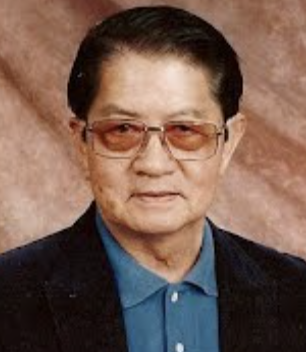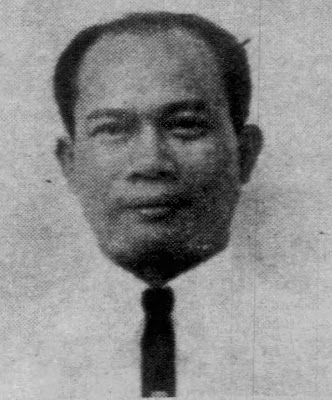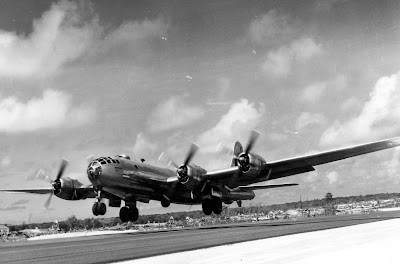Monday, May 30, 2022
WAR IS NOT ALWAYS BLACK AND WHITE
Tuesday, May 24, 2022
FIRST PINOY ELECTED
Wednesday, May 18, 2022
BEAUTIFUL PENMANSHIP
Tuesday, May 10, 2022
CHARLES BRONSON ON GUAM
Tuesday, May 3, 2022
PERCY'S FIRST NIGHT ON GUAM
LA PRIMERA NOCHE
DE PERCY HOWELL EN GUAM
Percy Howell, un
muchacho de solo 15 años, había llegado al puerto de Apra aquel jueves por la
mañana, el 4 de marzo de 1841, a bordo del barco ballenero británico, Lady
Beckwith.
El capitán de
Percy, el galés Evan Jenkins, era despiadadamente duro y Percy estaba dispuesto
a hacer cualquier cosa para escapar de su cruel autoridad. Como el Lady
Beckwith había fondeado a las 2 de la mañana, Percy aprovechó la oscuridad de
la noche para esconderse en un bote enviado desde la costa para recoger
artículos de intercambio con el barco. Percy se arrojó al pequeño grupo de
miembros de la tripulación que trasladaban cajones y cajas, y deslizó un dólar
de plata en la palma del barquero.
Cuando llegó a
Punta Piti, ya eran casi las 3 y no había transporte, pues no se esperaban
pasajeros. Así que se dirigió por el camino hacia Agaña, siguiendo el dedo
índice del barquero que le había señalado en esa dirección.
Cuando eran casi
las cinco, ya se encontraba en el centro de la ciudad, habiendo pasado hileras
e hileras de casas donde pequeñas lámparas parpadeaban a través de las rendijas
de las ventanas. Cuanto más caminaba, más notaba a la gente, en su mayoría
mujeres pero una buena cantidad de hombres, saliendo de sus casas y caminando
en silencio en el mismo sentido. Los siguió, tratando de pasar desapercibido.
Sus pasos medidos sólo fueron detenidos por el repique inesperado de las
campanas. El sonido parecía estar en la dirección a la que se dirigía este
flujo de personas.
Cuanto más
caminaba Percy, mayor era la muchedumbre que avanzaba en la misma dirección,
una o dos personas a la vez salían de sus casas para unirse a toda aquella
gente.
La mayoría de las
casas tenían techos de paja; casi todas habían sido construidas sobre pilotes a
excepción de las pocas casas de piedra. Los hombres, incluso los niños más
pequeños, vestían generalmente camisas blancas de manga larga y pantalones
blancos. La mayoría usaba sandalias y todos tenían sombreros. Las mujeres
vestían conjuntos de dos piezas, con falda larga y camisa corta. Era difícil
discernir más detalles ya que todas las mujeres usaban chales o pañuelos
ceñidos o sujetos debajo de la barbilla. Observó para hacer contacto visual con
la gente, pero fue en vano pues todos miraban solemnemente al suelo por el que
caminaban, sin siquiera susurrar entre ellos. Solo unos cuantos niños pequeños
miraron a Percy, quien les sonrió, los niños lo miraban fijamente sin
expresión. "¡Qué gente tan peculiar!" Percy pensó para sí mismo. Sólo
el canto de un gallo de vez en cuando rompía el silencio de la madrugada.
Las estrechas
calles se abrían de par en par en una plaza cubierta de hierba, bordeada por
edificios españoles de aspecto oficial, enlucidos de blanco y techos de teja
roja. Pero al fondo había una imponente iglesia de piedra; llano por fuera.
Habría sido difícil no entrar en esa iglesia, ya que la corriente de gente a su
alrededor lo empujaba más o menos en esa dirección. Los hombres se descubrieron
la cabeza, al igual que Percy.
Un poco nervioso,
Percy entró en la iglesia, sin saber qué hacer. Había oído en el viaje que Guam
era una isla española, gobernada por "castellanos" y la Iglesia
Católica. Percy nunca antes había estado dentro de una iglesia católica. No
había ninguna en su parte de la Inglaterra protestante, al menos que él supiera.
Cuando Percy
entró, vio lo tenuemente iluminada que estaba toda la iglesia. Había aquí y
allá velas encendidas, pero apenas podía distinguir las figuras de las personas
arrodilladas en el suelo. En el otro extremo de la iglesia había más velas
alrededor de un altar con un fondo de madera decorado con imágenes y pinturas.
Pero ésos eran solo algunos puntos brillantes en un mar oscuro de adoradores
parcialmente invisibles.
No había dónde
sentarse, así que Percy, mirando a la gente, se arrodilló en el suelo duro. Vio
a algunas mujeres cerca de él arrodillarse en sus pantuflas, pero Percy no
tenía pantuflas, solo zapatos duros que no eran muy adecuados para
arrodillarse.
Sonó una campana,
pero la gente no se levantó. Salieron un sacerdote y un niño vestidos con
túnicas. Percy aguzó el oído para escuchar lo que podría decirse, pero no oyó
nada. Cuando sus oídos se sintonizaron con el silencio, pudo distinguir algunos
murmullos, que parecían provenir del niño y el sacerdote.
Percy estaba
confundido. No hubo canto, ni órgano, ni movimiento por parte de la
congregación. Solo un leve murmullo, pero la gente se arrodilló estoicamente.
Los ojos de Percy se volvieron pesados, y si no fuera por miedo a perder el
equilibrio, se habría inclinado hacia adelante. Mientras luchaba por mantenerse
despierto, se acercó a la pared, apoyó su cabeza soñolienta en ella y todo
desapareció.
De repente, fue
sacado de su sueño por el sonido de las campanas. Percy logró silenciar un
chillido por la sorpresa. Miró a su alrededor; nadie se movió. ¿Por qué sonó
una campana? Luego volvió a sonar. Él miró. El sacerdote estaba levantando
algo, no sabría decir qué. No se oyeron más campanas. Percy volvió a apoyarse
en la pared y se durmió.
Sólo lo volvió a
despertar la mano pesada de un guardia español que sacudía su hombro derecho.
"¡Ponte de pie! ¡Levántate!", dijo el español con fuerza, pero no en
voz alta, ya que estaban en la iglesia. Percy no hablaba una palabra de
español, pero intuyó el significado.
Percy se puso de
pie y luego un caballero se adelantó y murmuró algo en español al guardia,
luego se dirigió a Percy. "¿Inglés?" "¡Sí!" Percy
respondió, aliviado.
"Soy el señor
Lynch, a su servicio. Creo que será mejor que me acompañe." Lynch y Percy
cruzaron la Plaza, ya era de día, hacia el edificio de dos pisos que parecía
oficial. En el interior, Lynch habló en español con todos los que conoció y
finalmente le dijo a Percy: "Quédate aquí y espérame hasta que
regrese".
Percy se quedó en
la planta baja, estudiando en silencio la arquitectura y la decoración del
edificio. Al poco tiempo, Lynch regresó y dijo: "Escucha, muchacho. Los de
tu barco te han estado buscando toda la mañana. Ese guardia español sabía que
habías desembarcado sin permiso. Pero acabo de hablar con el gobernador. Podrías
ser castigado por esto, pero le diremos al capitán que el entusiasmo religioso
se apoderó de ti, y abandonaste su barco simplemente para adorar a Dios
Todopoderoso".
Percy parecía
desconcertado, pero entendió la importancia de lo que acababa de ocurrir. Lynch
le había salvado el cuello.
"Pero,
señor", dijo Percy, "mi capitán es un sinvergüenza".
"¿Cuántos
años más estarás a su servicio?" preguntó Lynch.
"Dos años
más", respondió Percy.
Lynch dijo:
"Te compraré esos dos años. Pero, a cambio, debes estar a mi servicio
durante esos dos años". "¡Con alegría!" Percy respondió de
inmediato, sintiendo que Lynch era un hombre honorable.
Y así pasó. Lynch
le dio dinero a Jenkins para pagar los dos años de servicio incumplidos de
Percy, y Lynch zarpó, con Percy hacia Manila, donde Lynch hizo algunos
negocios. Nunca más se supo de ellos en Guam.
Pero, años más
tarde, cuando Percy regresó a Inglaterra, entre las muchas historias que contó
sobre sus aventuras en un barco ballenero, entretenía a sus oyentes con el
relato de que la primera casa en la que durmió en Guam fue la Casa de Dios.
Qué afortunado fue Percy por haber seguido a la multitud de chamorros a la iglesia, donde conoció al Sr. Lynch, quien lo libró de un severo castigo.











.jpg)







